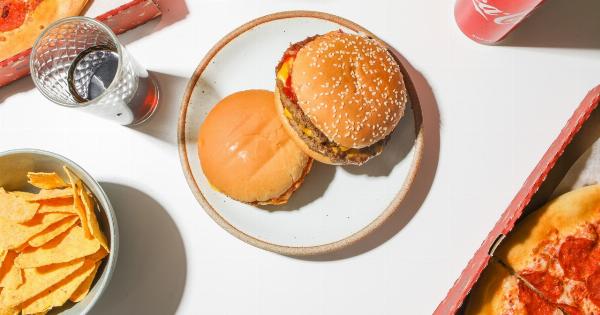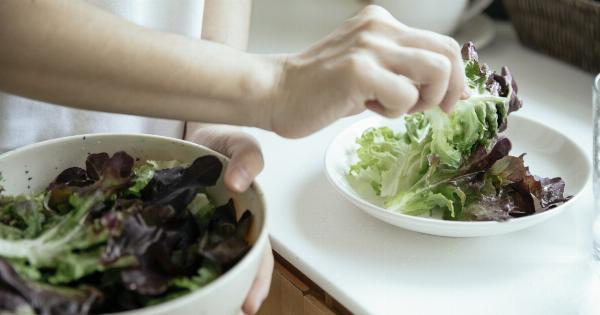Using a microwave oven has become a common practice in today’s fast-paced world. It offers convenience, time-saving benefits, and efficient cooking methods. However, there are certain foods that are not suitable for microwave heating.
Microwaves work by emitting electromagnetic waves that excite molecules, causing them to vibrate rapidly and generate heat. While this method is effective for many types of food, some ingredients can have adverse reactions or pose potential health risks when microwaved. In this article, we will explore ten forbidden foods for microwave heating.
Foods high in oil content
When it comes to foods with high oil content, like whole eggs or egg yolks, microwave heating can be disastrous. The high heat generated by microwaves can cause the oil to rapidly heat up and splatter, potentially leading to burns or fires.
Additionally, oily foods heated in the microwave can have an unpleasant texture and taste. It’s best to avoid microwaving foods with a high oil content and instead opt for alternative cooking methods such as stove-top frying or baking.
Paper bags and plastic containers
While it might be tempting to use paper bags or plastic containers for quick microwave meals, it can be hazardous. Materials like paper and plastic can release harmful chemicals when exposed to high temperatures, causing toxins to contaminate your food.
Always use microwave-safe containers, such as glass or ceramic dishes that are labeled as safe for microwave use.
Processed meats
Foods like bacon or sausages, which are typically high in fat, salt, and preservatives, are not suitable for microwave heating. When heated in a microwave, processed meats can release harmful chemicals such as nitrites and nitrates.
These substances have been linked to health problems and may increase the risk of certain cancers. It’s best to cook processed meats using conventional cooking methods, such as grilling or pan-frying.
Fruits with skins or peels
While it may seem convenient to heat fruits like apples or grapes in the microwave, it’s advisable to remove the skin or peel before doing so.
The high heat generated in the microwave can cause the skin to burst, resulting in a messy cleanup and potential injury. Additionally, microwaving fruits with skins or peels may not yield optimal results, as the texture and taste can be negatively affected. Instead, consider steaming or baking fruits for a healthier and tastier alternative.
Hot peppers and spicy foods
If you enjoy adding a little spice to your meals, it’s best to avoid microwaving hot peppers or spicy foods. When heated in a microwave, the capsaicin present in peppers can become airborne, causing eye and respiratory irritation.
Additionally, microwaving spicy foods can intensify the spiciness to an unbearable level. It’s safer to cook hot peppers or spicy dishes using other cooking methods, such as grilling or sautéing.
Carbonated beverages
Carbonated beverages, like soda or sparkling water, should never be heated in a microwave. The high pressure caused by carbonation can lead to explosive results if heated incorrectly.
The carbonation can cause the liquid to bubble up and potentially explode when the pressure builds. Always transfer carbonated beverages to a microwave-safe container before heating.
Breast milk or formula
If you need to warm breast milk or formula for a baby, skip the microwave. Microwaving breast milk or formula can cause uneven heating, resulting in hot spots that may scald a baby’s mouth.
Additionally, microwaving can destroy beneficial nutrients and antibodies present in breast milk. It’s safer to use a warm water bath or a bottle warmer specifically designed for this purpose.
Leftover rice or pasta
While it’s convenient to reheat leftovers in the microwave, it’s important to be cautious when reheating rice or pasta. These starchy foods can develop bacteria, specifically Bacillus cereus, if not stored properly or reheated inadequately.
Instead of using the microwave, it’s recommended to reheat rice or pasta on the stovetop to ensure it reaches a safe temperature throughout.
Foiled-wrapped foods
Using aluminum foil or metal containers in the microwave can have dangerous consequences. Metal objects like foils or containers can cause arcing, sparks, and even fire when subjected to the microwaves’ electric field.
If you need to cover your food while microwaving, always use microwave-safe plastic wrap or a microwave-safe lid.
Herbs and spices
Microwaving herbs and spices can result in a loss of flavor and aroma. The high heat generated in the microwave can cause the volatile oils responsible for their distinctive taste and smell to evaporate quickly.
It’s best to add herbs and spices to your dishes after microwaving or use alternative cooking methods, such as sautéing or simmering, to preserve their full flavor potential.





























